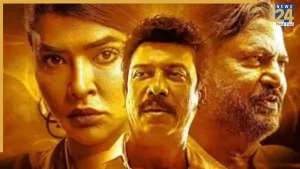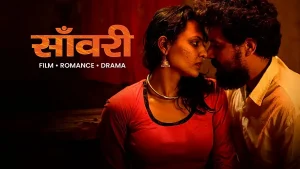
In a year where cinematic offerings span a broad spectrum of genres, Munjya (2024) emerges as a standout, weaving a narrative rich in cultural depth and personal transformation. Directed by the acclaimed filmmaker Anaya Desai, this film takes audiences on a profound journey through the intersections of tradition, identity, and change. With its evocative storytelling and compelling performances, Munjya offers a cinematic experience that is both thought-provoking and emotionally resonant.
A Narrative of Cultural Clash and Personal Growth
Munjya is set in the rural heartland of India, where age-old traditions and modern influences collide. The film centers on Munjya (played with remarkable nuance by Rohan Mehta), a young man caught between his familial obligations and his own aspirations. As the only son of a prominent local family, Munjya is expected to uphold traditional values and continue his family’s agricultural legacy. However, his dreams of pursuing a career in urban design challenge these expectations and spark a conflict that drives the film’s narrative.
The story unfolds as Munjya grapples with the weight of his inherited responsibilities while trying to forge a new path for himself. His internal struggle is mirrored by the external pressures of his community and family, each representing a different facet of his identity. The film explores themes of self-discovery, the tension between tradition and modernity, and the sacrifices made in the pursuit of personal fulfillment.
Characters Brought to Life
The strength of Munjya lies in its richly developed characters, each of whom contributes to the film’s exploration of tradition and transformation. Rohan Mehta’s portrayal of Munjya is both heartfelt and dynamic. His performance captures the complexity of a young man torn between familial duty and personal ambition, making Munjya a relatable and sympathetic protagonist.
The film’s supporting cast includes notable actors such as Priya Desai, who plays Munjya’s mother, a figure of unwavering traditional values. Priya’s performance brings depth to the character, portraying the mother’s internal conflict as she balances her love for her son with her adherence to cultural norms.
The role of Munjya’s father, portrayed by veteran actor Arun Kumar, adds another layer of complexity to the narrative. Arun’s portrayal of a patriarch struggling with the changing times provides a nuanced exploration of generational divides and the impact of modernity on traditional values.
A Visually Stunning Journey
Visually, Munjya is a feast for the eyes, capturing the essence of rural India with stunning cinematography. Anaya Desai’s direction brings to life the vibrant landscapes and traditional settings, immersing viewers in the film’s cultural context. The use of natural light and authentic locations enhances the film’s realism, creating a rich visual tapestry that complements its narrative.
The film’s cinematography, helmed by the talented Ravi Sharma, skillfully contrasts the serene beauty of the rural setting with the bustling energy of urban life. This visual juxtaposition underscores the central conflict of the film and highlights Munjya’s journey between two worlds.
A Soundtrack That Resonates
The musical score of Munjya, composed by the acclaimed Arjun Patel, plays a crucial role in conveying the film’s emotional depth. Patel’s music blends traditional Indian instruments with contemporary sounds, creating a soundtrack that enhances the film’s thematic elements. The score underscores key moments of transformation and conflict, enriching the viewing experience with its evocative melodies.
Themes and Cultural Reflection
Munjya is more than just a story of personal growth; it is a reflection on the cultural dynamics of modern India. The film delves into the tension between maintaining cultural heritage and embracing change, examining how these forces shape individual identities and familial relationships.
Through Munjya’s journey, the film explores the broader implications of pursuing one’s dreams while respecting the values and expectations of one’s community. It poses questions about the nature of tradition, the challenges of modernization, and the ways in which individuals navigate their own paths in a rapidly changing world.
Final Thoughts
Munjya (2024) stands out as a profound and visually captivating film that explores the delicate balance between tradition and transformation. Anaya Desai’s direction, combined with strong performances and a compelling narrative, makes this film a standout entry in contemporary cinema.
For viewers interested in stories that delve into cultural and personal conflicts with sensitivity and depth, Munjya offers a powerful and immersive experience. It is a film that not only entertains but also invites reflection on the challenges of reconciling personal aspirations with cultural heritage. As a poignant exploration of identity and change, Munjya is a cinematic journey that resonates long after the credits roll.




